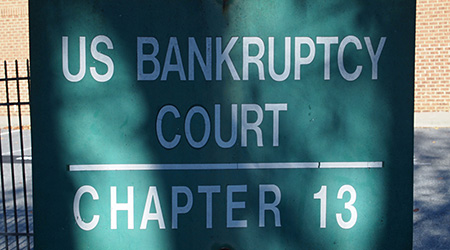What Is The Process Of Filing For Bankruptcy?

Filing for bankruptcy should always be considered a last resort after all other possible solutions have been exhausted. As of October 2005, new Federal laws were passed which has significantly changed the entire process for filing for bankruptcy. Additional steps are now required such as consulting with a credit counseling service and hiring a lawyer and should be expected due to the increased complications.
Chapter 7 bankruptcy is the most common form of bankruptcy filing and is often referred to as a liquidation or no asset bankruptcy. This allows a fresh start for the person filing bankruptcy to be debt free and move on with their life. However, an additional step of consulting with a credit counseling services is now required to determine whether or not the individual has the ability to repay any or all of the debt in question. This mandatory step in the process ensures individuals who are fully capable of repaying the debt they owe are not looking to use bankruptcy as a way of avoiding repayment of obligations.
Most financial institutions which have issued credit to an individual will often have in-house or external recommendations for credit counseling services which is a good place to start if you are planning to file for bankruptcy. There is also a minimum time requirement of a least an hour and half of consultation which should be adequate to determine if the debt can be repaid or if a bankruptcy is the best alternative.
Should you have the ability to repay obligations as designated by the credit counseling agency they will work of you to implement a budget. They will also often negotiate with creditors to lower payments, discharge interest and penalties and possibly settle some of the existing debt for pennies on the dollar. All of these steps are part of the process to repay obligations of the creditors and avoid the bankruptcy process if at all possible.
If however it is determined an individual is unable to repay obligations then the credit counseling agency will make a recommendation for chapter seven bankruptcy at which point you will need to contact an attorney to facilitate the bankruptcy process. Keep in mind this is not a free service and funds will be required for the credit counseling agency as well as lawyer fees if you look to go forward with bankruptcy. If you are unsure where to start you can contact your local state bar for an attorney referral.
It is also important to know that once you have declared bankruptcy obtaining credit might be very difficult and any credit you do receive will normally have a significantly higher interest rate. However, once you are debt free it is a good time to look at getting what is known as a secured credit card. Secured credit cards normally have a small deposit requirement and a minimal credit line that allows you to make purchases. Having a credit card can assist you by slowly rebuilding credit history. Be sure not to default on any new credit as it will completely unravel the fresh start that bankruptcy provides.
Filing for bankruptcy is not for everyone and due to the new bankruptcy law passed in October 2005 it is significantly more difficult to file and wipe clean existing obligations. If all other avenues have been exhausted and this is a last resort then bankruptcy may provide the fresh start needed to get your financial life back on track. As long as all steps are taken including speaking with a lawyer and meeting with credit counseling agencies then bankruptcy may be the solution for your financial difficulties.







